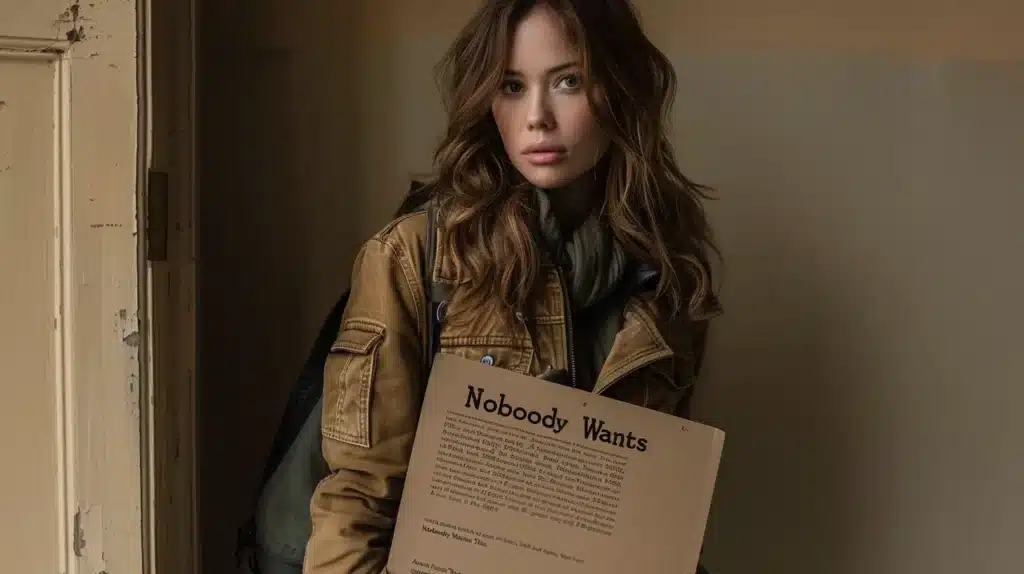Reframing the Narrative: The Representation of Jewish Women in Contemporary Media
In the ever-evolving landscape of television and film, the portrayal of characters from diverse backgrounds plays a pivotal role in shaping societal perceptions. For the Jewish community, particularly Jewish women, these portrayals have often been less than flattering, leaning on tired stereotypes that do little to reflect the rich, nuanced reality of their lives. As we dive deeper into this issue, it becomes imperative to explore how these portrayals impact real-world attitudes and what can be done to promote a more balanced and positive representation.
The Current State of Portrayal
Recent critiques, including those aimed at popular shows like Netflix’s “Nobody Wants This”, highlight a recurring theme: Jewish women are often depicted in ways that emphasize negative stereotypes. Characters come across as judgmental, materialistic, or overbearing—traits that serve to undermine rather than uplift. In her insightful analysis, Elizabeth Karpen points out how such portrayals create a dichotomy between the Jewish “witch” and the non-Jewish “shiksa goddess”, perpetuating a harmful narrative.
This trend is not isolated to one show. From “Never Have I Ever” to “Mean Girls”, we see similar patterns where Jewish women are cast as less desirable or antagonistic. This skewed representation not only distorts public perception but also impacts young Jewish women who seldom see themselves portrayed as complex or worthy protagonists on screen.
Understanding the Impact
The consequences of such portrayals extend beyond mere entertainment value. They contribute to a broader societal understanding—or misunderstanding—of Jewish culture and femininity. Stereotypes in media can lead to real-world stigmatization and bias, affecting how individuals are viewed and treated in various spheres including workplaces, social circles, and even within their personal relationships.
Voices from the Community
- Rachel Goldstein, a media analyst specializing in cultural representation, notes, “When you only see caricatures of yourself on screen, it starts to affect your self-esteem and the way others perceive you.”
- Sarah Levin, a high school teacher in New York City, shares that her students often struggle with identity because they feel they do not fit the narrow molds presented in media.
- Deborah Katz, a filmmaker, adds, “We need more stories where Jewish women are shown in all their diversity—professionally successful, struggling, joyful, dynamic—just like any other group.”
Changing the Narrative
Addressing this issue requires a multifaceted approach. First and foremost is the need for greater diversity among those who write, direct, and produce content. When more Jewish women are involved in creating stories, the output naturally becomes more authentic and reflective of real experiences.
Education also plays a crucial role. Workshops and seminars that educate upcoming filmmakers about cultural sensitivity and the impact of stereotyping can lead to more thoughtful portrayals.
Examples of Positive Change
Despite the challenges, there are glimmers of positive change that inspire hope. Shows like “Broad City” and “Crazy Ex-Girlfriend” have been praised for presenting Jewish women who are complex and relatable without relying on outdated clichés. These shows blend humor with heartfelt storytelling, offering viewers a more rounded understanding of Jewish identity.
Film initiatives such as the Jewish Women’s Film Festival also highlight diverse narratives within the community, providing a platform for voices that might otherwise go unheard.
Moving Forward: Actions for Change
- Increase Representation Behind the Camera: Encourage and support Jewish women to take on roles as writers, directors, and producers.
- Educate on Cultural Sensitivity: Implement mandatory training for content creators on cultural representation and its impacts.
- Promote Diverse Storytelling: Invest in projects that offer varied depictions of Jewish women’s lives.
- Create Dialogues: Facilitate conversations between creators and communities to ensure authentic representations.
A Call to Action
The portrayal of Jewish women in media is just one facet of the broader dialogue about representation in entertainment. As we push for change, let us be guided by a commitment to authenticity, respect, and inclusivity. It’s time for all involved—from creators to consumers—to reflect critically on these issues and advocate for a media landscape where every woman can see herself represented with dignity and depth.
In doing so, we not only enrich our storytelling but also enhance our understanding of each other’s worlds. Let’s embrace this challenge with enthusiasm and hope for a future where the richness of every culture is celebrated on screen.



